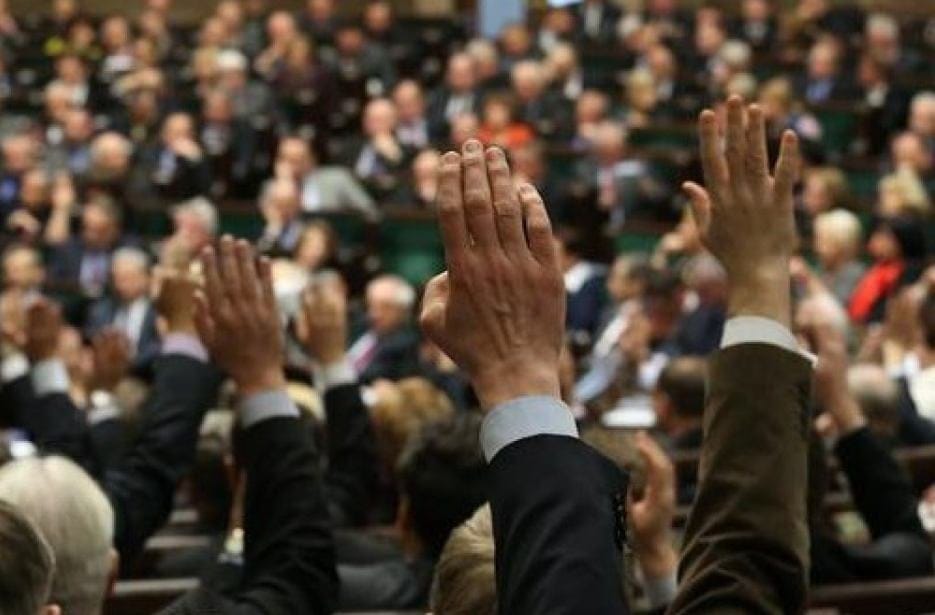Apel stu naukowców, dziennikarzy, twórców, polityków o wycofanie zmian w ustawie o IPN. "Nie tędy droga do odzyskania zbiorowej godności"
"Intencją ustawodawcy była obrona dobrego imienia Polaków. To zrozumiałe. Jednak ustawa idzie dalej – sugeruje niewinność Polaków, tworząc z nich jedyny w Europie naród bez skazy. Nie tędy droga do odzyskania zbiorowej godności. Ale ustawodawca może jeszcze się cofnąć, o co gorąco apelujemy". List otwarty blisko setki wybitnych Polek i Polaków
List podpisali m.in. Anne Applebaum, Bogdan Białek, Anna Bikont, Jacek Bocheński, Barbara Engelking, Timothy Garton Ash, Konstanty Gebert, Jan Tomasz Gross, Krystyna Janda, Maria Janion, Aleksander Kwaśniewski, Janusz Onyszkiewicz, Andrzej Rzepliński, Radek Sikorski, Aleksander Smolar, Andrzej Stasiuk, Paweł Śpiewak, Róża Thun, Krystyna Zachwatowicz-Wajda.
Pełna lista podpisów niżej.
Apel w sprawie ustawy o IPN
31 stycznia 2018 r.
My, niżej podpisani zwracamy się do opinii publicznej powodowani troską o stan relacji polsko-żydowskich i polsko-izraelskich. Apelujemy o wyciszenie emocji w imię wspólnego dobra, jakim są prawda i budowany od ćwierćwiecza dialog.
Ustawa o Instytucie Pamięci Narodowej, przyjęta 26 stycznia 2018 przez polski Sejm i skierowana do dalszej legislacji, przewiduje karę do trzech lat więzienia dla każdego, „kto publicznie i wbrew faktom przypisuje Narodowi Polskiemu lub Państwu Polskiemu odpowiedzialność lub współodpowiedzialność za popełnione przez III Rzeszę Niemiecką zbrodnie nazistowskie”.
Ten niefortunny zapis odbił się szerokim echem w Polsce i na świecie, budząc liczne zastrzeżenia – logiczne, moralne i prawne.
- Dlaczego dyskusja o faktach historycznych ma toczyć się w asyście prokuratury i sądu?
- Dlaczego ofiary i świadkowie Zagłady mają ważyć słowa, by nie podpaść organom ścigania i czy będzie odtąd czynem karalnym świadectwo ocalałego Żyda, który „bał się Polaków”?
- Dlaczego mamy spierać się nie na argumenty, lecz na paragrafy?
- Czy byłby to, zważmy, zakaz symetryczny do zakazu kłamstwa oświęcimskiego?
- I skąd taryfa ulgowa dla wybranych zawodów – dlaczego za „antypolskie” opinie nie będą ścigani jedynie uczeni i artyści?
- A dziennikarze? A nauczyciele?
- Gdzie ma leżeć granica między tolerowaną nauką i sztuką a karalną publicystyką i kto ustalałby „fakty”, którym nie wolno się sprzeciwić?
Intencją ustawodawcy była obrona dobrego imienia Polaków. To zrozumiałe. Gdy Polacy słyszą o „polskich obozach” podejrzewają, często na wyrost, że zarzuca im się zorganizowanie Auschwitz (Jan Karski pisał o „polskich obozach” mając na myśli „obozy zlokalizowane w Polsce”).
Jednak ustawa idzie dalej – sugeruje niewinność Polaków, tworząc z nich jedyny w Europie naród bez skazy. Nie tędy droga do odzyskania zbiorowej godności.
Ale nie wszystko stracone. Ustawodawca może jeszcze się cofnąć, o co gorąco apelujemy.
LISTA PODPISÓW
Jesteśmy obywatelskim narzędziem kontroli władzy. Obecnej i każdej następnej. Sięgamy do korzeni dziennikarstwa – do prawdy. Podajemy tylko sprawdzone, wiarygodne informacje. Piszemy rzeczowo, odwołując się do danych liczbowych i opinii ekspertów. Tworzymy miejsce godne zaufania – Redakcja OKO.press
Jesteśmy obywatelskim narzędziem kontroli władzy. Obecnej i każdej następnej. Sięgamy do korzeni dziennikarstwa – do prawdy. Podajemy tylko sprawdzone, wiarygodne informacje. Piszemy rzeczowo, odwołując się do danych liczbowych i opinii ekspertów. Tworzymy miejsce godne zaufania – Redakcja OKO.press

Komentarze